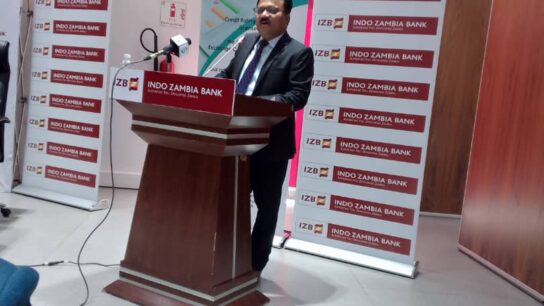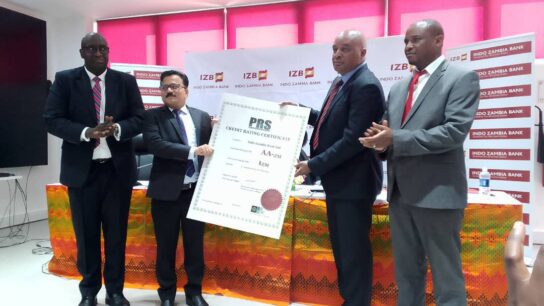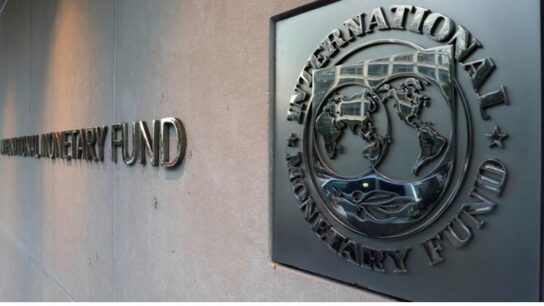The Ministry of Finance has projected a fiscal deficit of 6.5 percent in December, 2019, from 7.6 percent recorded in December, 2018.
Finance Minister Margaret Mwanakatwe says her ministry will expedite the tax reform process and address attendant challenges such as digitization.
Mrs. Mwanakatwe says the Zambian Government agrees with the International Monetary and Finance Committee (IMFC) that advancing financial and structural reforms is critical to boosting potential growth and employment, and enhancing resilience and financial inclusion.
She says as stipulated in the Economic Stabilisation and Growth Programme, government will continue with initiatives aimed at achieving cost reflectivity for fuel and electricity pricing.
The Finance Minister says in its dealings with both debtors and creditors as stipulated in the Medium Term Debt Strategy, government is making efforts to continue debt transparency and sustainable financing practices.
She says her ministry will prioritize debt sustainability and remain firmly committed to Zambia’s debt obligations.
“We will continue to dismantle domestic arrears and work with all stakeholders in reducing economic imbalances by promoting macroeconomic and structural policies that support private sector competitiveness, diversification and sustainable growth. Our focus is to facilitate domestic credit growth beyond the 15 percent registered in 2018. We commit to strong governance, including tackling corruption and other fiscal discipline shortcomings, through relevant regulations and laws. This year’s amendment of the Public Procurement Act, 2008, will help to facilitate the implementation of expert estimation measures in tendering for capital projects and high value goods, and contribute to the attainment of fiscal consolidation goals,” she said.
“We will remain steadfast in our implementation of financial sector development, inclusion, and deepening reforms and are keen to become part of the fund’s digital economy moonshot diagnostic study to help us take stock of financial inclusion and deepening initiatives.”
The Finance Minister said government will continue to support institutions and national efforts to build resilience to, and deal with, the macroeconomic consequences of pandemics, cyber risks, climate change and natural disasters, and energy scarcity.
Mrs. Mwanakatwe stated that her ministry will enhance monitoring and evaluation efforts and also continue to collaborate with development partners in its effort to achieve the 2030 Sustainable Development Goals (SDGs).
“We acknowledge the statement of the IMFC that global expansion will continue at a slower pace than anticipated and that downside risks such as geopolitical risks, a sudden sharp tightening of financial conditions against a backdrop of limited policy space, historically high debt levels, and heightened financial vulnerabilities, will be persistent. Through sustained fiscal consolidation and enhanced domestic resource mobilisation, we will rebuild fiscal buffers, be flexible and growth-friendly, and strike the right chord between ensuring debt sustainability, supporting demand while avoiding procyclicality, and safeguarding social objectives. To protect Zambia’s economic transformation and expansion progress, the Government will also target efforts at risk mitigation, enhancement of resilience, and prompt action in upscaling growth so that we attain our annual Gross Domestic Product [GDP] target,” she said.
“The Ministry of Finance will continue to work closely with the Bank of Zambia to ensure that monetary policy positively influences price stability to help inflation to remain on track toward, or to stabilize within the single digit target for 2019. The flexibility of the exchange rate will be maintained as a shock absorber against the downside risks projected by the IMFC. The Government expects the decisions of the Central Bank to be well communicated to the market and the general public, including information on the ongoing efforts aimed at building reserves to three months of import cover by the end of 2019, and higher in the medium term to long term.”
Govt projects 6.5% fiscal deficit








